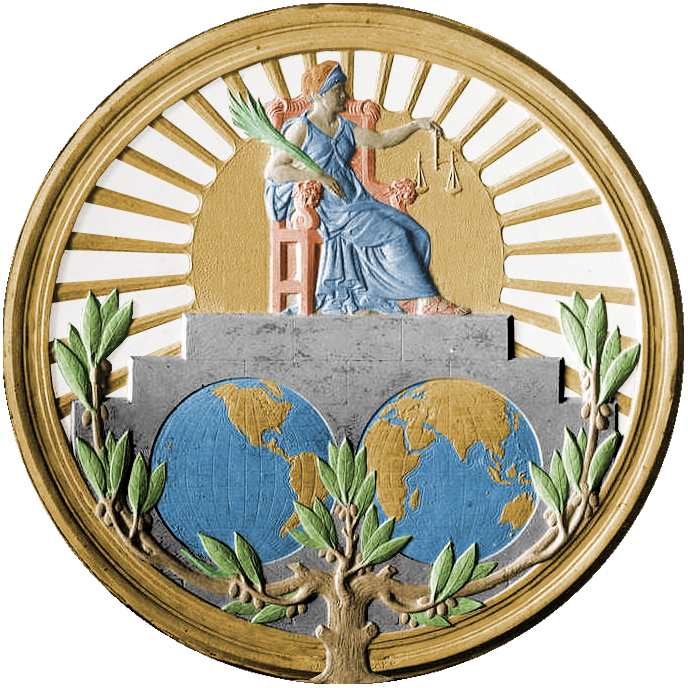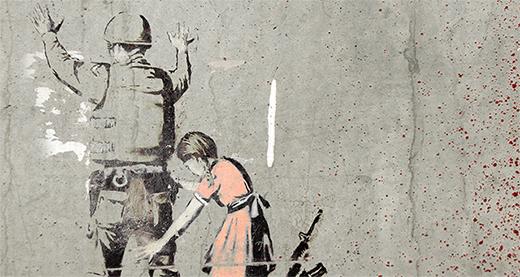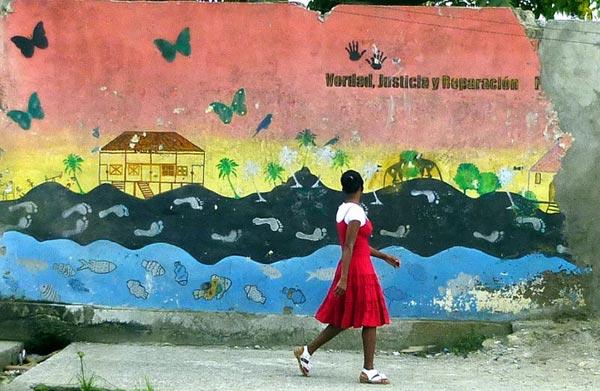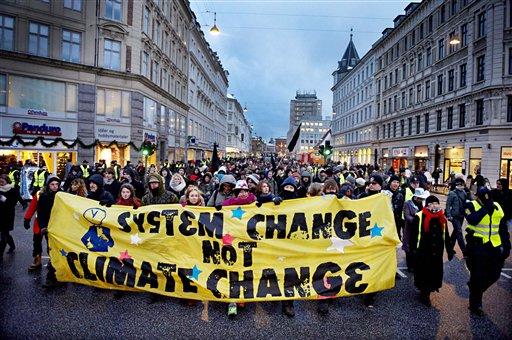Solve Global Problems? Build Global Governance
archive


Solve Global Problems? Build Global Governance
Moving from exclusive to inclusive identities
Ahmet Davutoğlu correctly warns us in his essay of March 2017 about the dangers lying in the “rise in populist autocracies, exclusivity, unilateralism, [and] the selfish pursuit of narrowly defined national interests at the expense of common values and goods.” Although diverse causes generate xenophobic, narrowly nationalistic, populist movements in many societies throughout the world, all these movements hold one characteristic in common: Each one embraces an identity that excludes other human beings who are seen as an enemy. Each one opposes those human beings who nurture an inclusive identity. The populists put their own group first and consider others of little value; the “inclusivists” emphasize universal human rights and the common good. Loud voices embracing exclusive identities are arising even in societies that until recently had been assumed to be safe havens for democracy and universal human rights, such as in the United States and Europe.
Davutoğlu also advances the thesis that global governance can be an effective and attractive antidote to narrow-minded populism. For that to be true, it is important to emphasize that not just any global governance will do. The existing international system is one form of “governance,” although it is ineffective, unreliable, and unfair. If globalization is dominated by large corporations, it will be a form of “private governance.” If unregulated markets determine what to produce and consume, it will be predatory yet profitable for some. If one or several great powers dominate, it will be a form of neo- imperial, violence-prone governance.
By contrast, a preferred form of global governance must be informed by inclusive identities, seeking fair representation of all the world’s people in decision-making, and inspired by the goal of serving the common good. Such governance can provide opportunities and benefits that will cause exclusivist populism (and terrorism) to recede and enable the values of human dignity to be further strengthened. The benefits would presumably include practical respect for all people’s human rights, including the right to escape poverty and to obtain the basic necessities of life. Although the abolition of global poverty is materially possible, it has been politically impossible. Why?
Davutoğlu and all of us need to press hard for answers to this question, because the answers will shed light on why progress toward desirable global governance is slow. We could establish a system of good global governance, just as we could abolish poverty, if enough people insisted on it and translated their insistence into political power. For this to happen, a much more widespread commitment to inclusive identities is required—which is a task for public and private education, for theological and philosophical nurture, and for visionary leadership from civil society organizations, progressive governments, and intergovernmental organizations.

Seal of the International Court of Justice
Growing a movement for global governance
Whether those expressing populist mindsets or those seeking good governance will gain the upper hand is far from clear. Publics are often poorly informed and seem more responsive to appeals to exclusive identities than to inclusive identities. The challenge before those who generally agree with Davutoğlu’s warnings is to figure out how morally sensitive people can bring about the worldwide education and personal motivation required to build a determined social movement that will generate the necessary political support for either restructuring existing United Nations agencies or creating new institutions capable of protecting human life and environmental health while weaning corporate managers and shareholders from predatory profits, curtailing overconsumption, and transforming me-first nationalism.
Such a movement will also have to rein in wildly unwarranted faith in the utility of military power, which produces a groundswell of negative forces that deprive global democratic institutions of life and opportunity to grow.
Institutionalizing peace and justice, ends and means
Those seeking good governance face a massive undertaking with many imponderables and unforeseeable dimensions. Nonetheless, two elements seem clearly required for strategic global peacebuilding to succeed.
it is important to emphasize that not just any global governance will do. The existing international system is one form of “governance,” although it is ineffective, unreliable, and unfair.
First, building a just peace will not be possible if it is approached as simply a byproduct of national military preparedness and successful war prevention. To be sustained and minimally just, peace needs to be imagined, planned, and institutionalized worldwide. To return with nostalgia to an imagined time of liberal internationalism in which nation-states peacefully co-existed and solved their international problems slowly, following the lead of a superpower, and without enforceable rules aimed at good conduct, is no longer possible. It is not politically feasible, and it would not be fair.

Second, achieving the desired ends (effective global governance with peace informed by pursuit of human dignity) requires inclusive means. Ends flow out of means. Peace is the work of justice. They will succeed together or not at all. There is no shortcut around genuine inclusion of all societies and their equitable participation in decision-making to build global governance. This inclusivity is required in order to create political feasibility for global governance. Similarly, there is no way to make inclusivity possible and effective without democratic institutions of global governance.
Some in the North have treated the Global South as recipients worthy of the North’s capital investments, but not as societies capable of making vital contributions for defining the means and ends of global governance. Yet without the South’s participation in defining the ends, the means will not be inclusive enough to generate the political support needed to address problems of globalization as well as seize opportunities in globalization, nor will the necessary political support be generated to re-structure incentives designed to encourage the well-off to quit dragging their feet against the vertical dispersal of sovereignty necessary to achieve equitable governance.
Empowering the willing while not waiting for the reluctant
The industrialized countries have not made good use of their years of opportunity following the end of the Cold War. The sole superpower has been particularly disappointing, because it has had sufficient wealth, technology, knowledge, freedom, and geo-strategic national security to enable it to lead a strong, deliberate movement toward democratic global governance. Rather than taking safe steps toward a global rule-of-law society, it has squandered many opportunities, even though the steps, if taken one at a time, would not have threatened its security. At many times since 1989, and particularly during 2001-09 and again in 2017, Washington has generally opposed strengthening international law; violated the UN Charter by launching a war lacking any reasonable claim of self-defense or Security Council authorization (against Iraq); launched numerous military attacks by drones in countries with which the United States was not at war; violated the Geneva Conventions prohibiting torture; refused to ratify the already-negotiated comprehensive nuclear test ban treaty; refused to pursue its obligation under the nuclear non-proliferation treaty to negotiate nuclear-weapons disarmament; refused to join the International Criminal Court designed to deter genocide, war, crimes, and crimes against humanity; refused to institute international standards limiting greenhouse gas emissions; chose not to push for democratizing the structure of the UN Security Council; failed to contribute its UN-requested share to international economic development; and recently announced its intention to slash its contributions to the United Nations.

Much of Europe has demonstrated a more positive attitude toward strengthening the rule of law in world affairs, but probably made a mistake in waiting for the United States to lead toward better global governance in the post-Cold War world. Europe may have done better than the United States, because it learned some lessons after recurring wars devastated Europe repeatedly. Rather than entrust their security following World War II to new policies of military preparedness, western Europeans made a deliberate effort—which required imagination, planning, and institutionalization—to create a common coal and steel community that turned out to be a far stronger and more effective means of peacebuilding than a new Maginot line or a renewed round of military preparations. Many Germans also learned lessons emphasized by the Nuremberg war crimes trials. They subsequently led the way for broad European support for the International Criminal Court. These transnational peacebuilding initiatives illustrate institutionalizing movement from the exclusive identities of Nazi nationalism to much more inclusive identities, both regionally and globally.
...achieving the desired ends (effective global governance with peace informed by pursuit of human dignity) requires inclusive means. Ends flow out of means. Peace is the work of justice. They will succeed together or not at all.
It is instructive for the future of global governance to note that the problems of the European Union today are not due to the idea of political and economic integration itself. In part at least, the problems lie with giving insufficient attention to political grievances arising in member societies because a democratic deficit was not sufficiently overcome. Also the EU may have expanded too quickly, without giving enough attention to building the attitudes and values necessary for political community to work well. This recognition brings us back to underscoring the need to be more creative and thoughtful in finding new ways to do political education, nationally, regionally, and globally, so that publics are better informed and political institutions are more responsive. In very few societies has civic education prepared young people for changing the structure of the international system, yet that is what is needed.
Given world history since World War II, it would be imprudent for the world’s people to wait for the United States or Europe to lead the way toward global governance. Their contributions, of course, will be essential. But they need sustained pressures from the grass roots. Publics should withdraw support from all legislative candidates who do not implement inclusive identities in their votes in parliaments. Perhaps consumers could buy only from corporations that vigorously advance inclusivity. Leadership and pressure must come from a transnational coalition of individuals, human rights groups, other civil society organizations, religious bodies, progressive governments, and international organizations. Unrelenting, courageous, bottom-up pressures, perhaps with the help of a global people’s assembly, will be required to effect robust and lasting change to the structure of global governance.




